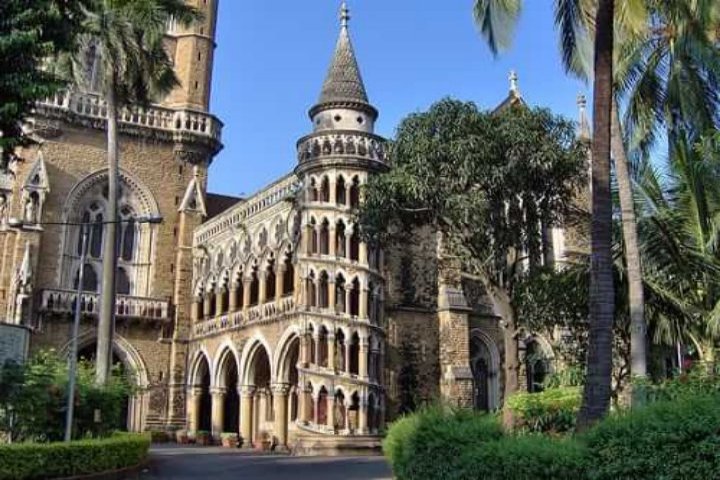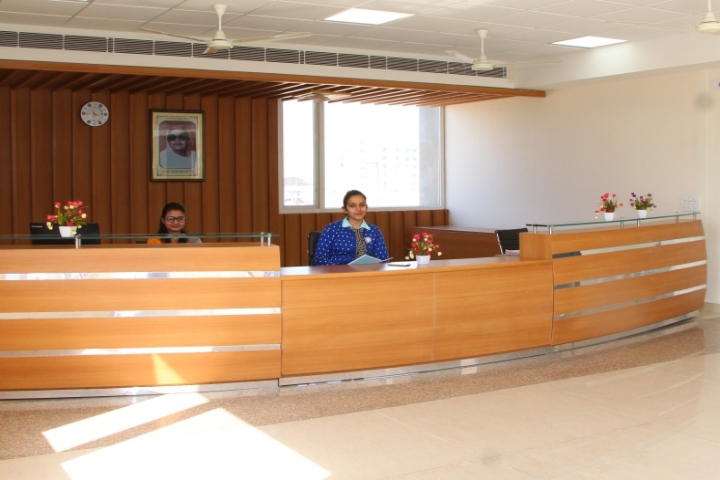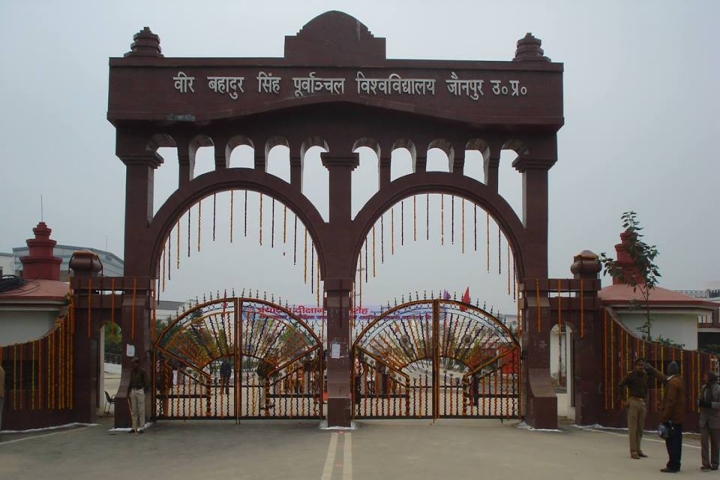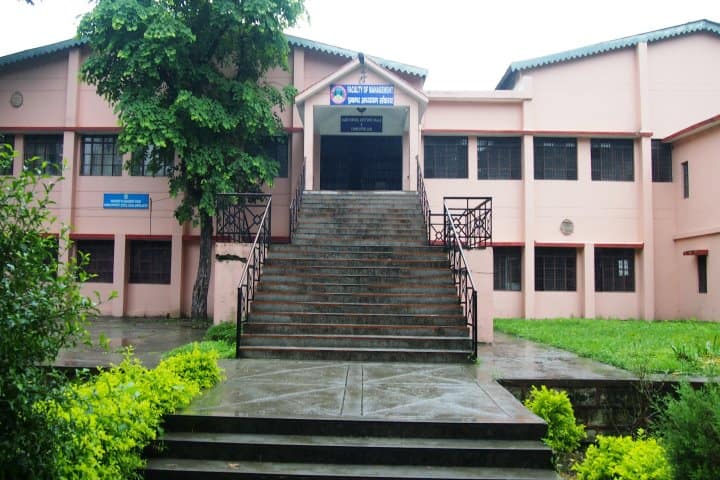
E-Commerce Course Details - Fees, Subjects, Syllabus, Duration, Eligibility, Career Scope
Degrees offered: B.Com, M.Com, B.B.A, B.Com(Hons), MBA
What is E-Commerce
E-Commerce, electronic commerce or internet commerce is the buying and selling of products over the internet. It also refers to the transactions directed via the internet. Online auctions, internet banking, payment gateways and online ticketing are activities covered in E-Commerce. It is expected that by 2040, all purchases will be via E-Commerce.
The course offers in-depth understanding of supply chain management, digital marketing, consumer behaviour, and e-commerce platforms. Students acquire useful abilities in digital retailing, web analytics, and online company operations. The basic requirement for enrolling in e-commerce courses is a high school degree with a strong foundation in mathematics and business related subjects.
These programs cover online business operations, digital marketing, and e-commerce strategies. Graduates can pursue careers in online retailing, web analytics, e-commerce management, and digital marketing, and can also explore opportunities in supply chain management, customer relationship management, conversion rate optimization, and technology integration. More than 100 colleges in India provide E-Commerce courses.
These programs cover online business operations, digital marketing, and e-commerce strategies. Graduates may pursue careers in online retailing, web analytics, e-commerce management, and digital marketing, and may also explore opportunities in supply chain management and digital entrepreneurship.
Highlights: E-Commerce
Particulars | Values |
Name | E-Commerce |
Degrees | UG: B.Com, BBA, BMS PG: M.Com, MBA, MA |
Duration | UG: 3 years PG: 2 years |
Eligibility | UG: 10+2 with 50 per cent aggregate marks PG: Bachelor's degree from a recognised university |
Entrance Examination | UG: CUET UG PG: CAT, MAT |
Admission Process | Entrance Examination |
Job Profiles | Business Analyst, Customer Relation Manager, E-Business Consultant, Data Administrator |
Top Recruiters | eBay, Flipkart, Amazon, Snapdeal, Alibaba |
Top Private E- Commerce Colleges in India with Fees
Private institutes are comparatively more expensive than public institutes. Candidates must fulfil the requirements of the desired institute to be eligible to apply for admissions. In the table below we have mentioned the top private e-commerce colleges in India along with their respective fees.
Colleges | Fees |
- | |
| IPER Bhopal | Rs. 1.74 Lakhs |
Rs. 7.40 Lakhs | |
Rs. 3.30 Lakhs | |
| DBS Dehradun | - |
Rs. 12000 | |
Rs. 1.78 Lakhs | |
- | |
| ALC Vijayawada | - |
Rs. 2.41 Lakhs |
Top Government E-Commerce Colleges in India with Fees
Studying at a public university is generally more affordable than at a private one, with many offering excellent infrastructure and high-quality education. Below, we list the top government e-commerce colleges in India, highlighting their value and academic standards. These institutions provide comprehensive programs and career opportunities.
Colleges | Fees |
Rs. 59,380 | |
- | |
- | |
Rs. 2 Lakhs | |
Rs. 1.1 Lakhs | |
- | |
Rs. 45,600 | |
Rs. 2.96 Lakhs | |
Rs. 50,680 | |
Eligibility Criteria (UG & PG) of E-Commerce
To get admission to an E-Commerce course, students should meet certain eligibility requirements. They can check the official website of the college to find the eligibility criteria and other course details. Students can also check the programme brochure released by the institutes for further details. Listed below eligibility criteria of UG and PG levels.
Eligibility Criteria of UG Courses
Candidates who seek to get admission in E-Commerce courses at any university must fulfil certain eligibility criteria. Only those who have fulfilled these requirements are eligible for admissions. While these criteria may vary in certain aspects from university to university, the basic eligibility requirements of the course are listed below:
- Students should have cleared their 12th from a recognised board of education; CBSE, ICSE or state board.
- A minimum average score of 50 per cent is expected by colleges in the qualifying examination
- Students from any stream can apply for admissions provided they have met the eligibility requirements.
Top Entrance Exams for UG Courses
Aspiring candidates should appear for the respective entrance examinations. Qualifying for this exam is crucial, as it determines their eligibility to enrol in the desired course. The examinations can be conducted at national, state, or university level. Mentioned below are the popular entrance examinations for undergraduate degrees in E-Commerce.
Exam Name | Level | Conducting Body | Exam Schedule |
National | NTA |
Eligibility Criteria for PG Courses
Students who have met the eligibility requirements can apply for a Master’s degree in E-Commerce at the postgraduate level if they are interested in studying further. After the completion of a bachelor’s degree, students are eligible for a postgraduate degree in E-Commerce.
- Minimum eligibility requirement for postgraduate degree is a bachelor’s degree in E-commerce or similar discipline from a reputed institution.
- Various colleges accept graduation degrees in economics, honours in accountancy and business management studies.
- The student must possess a minimum 45-50% marks in bachelor’s degree.
- The marks obtained in the qualifying examination is noticed by colleges to grant admissions
- National, university and state level entrance examinations are also conducted to get admitted into top-notch institutions.
Top Entrance Exams for PG Courses
Admission to postgraduate courses in E-Commerce relies on entrance exam scores. These exams assess candidates' aptitude in relevant fields and play a crucial role in determining admission to esteemed institutions offering specialised programmes. Details regarding these exams are furnished in the table below:
Exam Name | Level | Conducting Body | Exam Schedule |
National | IIM Lucknow | ||
National | All India Management Association |
Scope of E-Commerce in India and Abroad
Students interested in Online Business, E-Commerce concepts, and other processes can apply for this course. Aspirants who are interested in making a career in business are also well-suited for this course. Programming knowledge, databases and networks also help in learning this subject.
Some of the work settings include accounting and management firms, organisations dealing with online transactions, banks, and networking firms. Graduates can apply for a wide variety of job profiles after graduation. With growth in online businesses and shopping, the demand for qualified professionals also increases. In the near future, the employment opportunities will grow dramatically.
Course Fees E-Commerce
| Minimum Fees | Maximum Fees | |||
|---|---|---|---|---|
| Private | Government | Private | Government | |
| UG | ||||
| PG | ||||
| DIPLOMA | ||||
Course Subjects
In this section, we will explore the syllabus for UG and PG level courses in E-Commerce. Core topics include Digital Marketing, E-Commerce Platforms, and Data Analytics. Students are encouraged to review the detailed syllabus on the college's official website.
E-Commerce Syllabus for UG Courses
The subjects and syllabus for the undergraduate course in E-Commerce depend on the institute and degree applied by the candidates. Candidates can check the syllabus by visiting the official website of the desired institute. In the table below, we have mentioned the syllabus of PSG College of Arts and Science for their B.Com E-Commerce course.
Semester- I | |
Tamil / Hindi / French – I | Communicative English – I |
Financial Accounting – I | Computer Practical I -Desk top Publishing |
Mathematics (Allied – MA) | |
Semester- II | |
Tamil / Hindi / French – II | Communicative English – II |
Financial Accounting – II | Computer Practical II- Excel & Tally |
Practice Workshop – I | Statistics (Allied – ST) |
Ability Enhancement Compulsory Course – I Value Education | |
Semester- III | |
Cost Accounting | Income Tax |
Basics of e - commerce and m - commerce | Fundamentals of C & C++ |
Computer Practical III - C & C++ | Business Economics (Allied - COM) |
Environmental Studies | |
Semester- IV | |
Corporate Accounting – I | Business Law |
Marketing | Java Programming |
Computer Practical IV -Java Programming | Practice Workshop –II |
Operations Research (Allied - ST) | Information Security |
Semester- V | |
Corporate Accounting – II | Visual Basic .Net |
Computer Practical V – Visual Basic .Net | e-Services (or) Management Information System |
Financial Management | Introduction to Mobile - Application Development |
Internship | Generic Elective Course - EDC |
Semester- VI | |
Management Accounting | Discipline Specific Elective Course - II |
Introduction to ERP | Logistics Management |
Web Programming | Computer Practical VI - Web Programming |
Practice Workshop – III | Project Work |
NCCC-Non CGPA Credit Course | |
E-Commerce Syllabus for PG Courses
The course duration of postgraduate courses in E-Commerce is two years, and the course curriculum is spread over four semesters. Some of the subjects offered are Strategic Management, Cost Accounting, Management Accounting, Internal Marketing, CRM. In the table below we have mentioned the e-Commerce Management PGDM syllabus of Welingkar, Mumbai.
Semester- I | |
Principles of Management | Financial Accounting |
Human Resource Management | Marketing Management in the Digital Era |
Managerial Economics | Organisational Behavior |
Semester- II | |
Strategic Management | Cost Accounting |
Innovation Management | Mastering Life Skills and Successful Interview Preparation |
Legal Aspects of Business | Project WeLike |
Semester- III | |
Starting an E Commerce Venture -I | Starting an E Commerce Venture -II |
Financial Technology Solutions | Internet Marketing |
Business Analytics | |
Semester- IV | |
Venture Capital & Crowdfunding | Logistics Management in E:commerce |
CRM | Social media marketing |
Project Work | |
Careers in E-Commerce
Instead of toiling hard in other studies and then earning a big salary package, E-Commerce is the simplest way that you can enhance your soft skills and technical skills and earn a handful. Market research analyst, web developer, computer systems analyst and many more are career paths from which aspirants can choose one according to their passion.
Job Profiles and Top Recruiters
E-Commerce is widely used in sectors like travel, retail, deals, education, job portals, hyperlocals. The career paths require creativity, operations in management, supply chain, marketing and branding and other financial stuff. Few job profiles with their job description are given below for reference.
Job Profile | Description |
Business analysts are responsible for bridging the gap between IT and the business using data analytics to assess processes and determine requirements. He delivers data-driven recommendations and reports to executives and stakeholders. | |
Customer Relation Manager | Customer Relation Manager is responsible for customer relationships after the service is given. Customer relation managers continue to work with customers to update them on services and products. |
Supply Chain Manager takes care of logistics of a company. Operational performance is analysed and issues are resolved by the Supply Chain Manager. | |
Project Manager | Project Manager decides web marketing channels, and social media platforms. He also displays partnerships to increase website activity. |
Database Administrator | Database Administrator determines the data to be stored in a database. Requirements gathering, analysis and design on data are done by the database administrator. |
E-Business Consultant | Database Administrator Analyses a business and designs an E-Commerce plan to achieve targets. He is an expert in all online businesses. |
Top Recruiters in E-Commerce Sector
Graduates with an E-Commerce degree can work in healthcare companies, research institutions, hospitals, academic institutions, and rehabilitation centres, handling online platforms and digital strategies. Opportunities also exist in sports organisations and wellness centres. Top recruiters include Amazon, Alibaba, and eBay. Mentioned below are some of the top recruiters in the field of E-Commerce.
- eBay
- Flipkart
- Amazon
- Snapdeal
- Alibaba
- Myntra
- Paytm
- Yahoo
Average Salary
Salary packages offered to E-Commerce graduates are usually high and they are hired only if they are skilled technically and staying updated. There are numerous career opportunities in the field of E-Commerce, including roles such as E-Business Consultant and Supply Chain Manager. Average salaries of the main positions in E-Commerce are as follows.
Job Profiles | Salary |
E-Business Consultant | Rs. 14.3 LPA |
Supply Chain Manager | Rs. 14.3 LPA |
Project Manager | Rs. 17.3 LPA |
Database Administrator | Rs. 7.4 LPA |
Business Analyst | Rs. 9.7 LPA |
Customer Relation Manager | Rs. 3.7 LPA |
Required Skillset for E-Commerce
An e-commerce course equips students with a comprehensive understanding of online business operations and digital marketplace strategies. This programme delves into various aspects of e-commerce, preparing individuals to effectively manage and innovate in the digital economy. Following are the skills required for pursuing this course:
- Writing
- Data Analysis
- Development Skills
- Marketing Automation
- Search Engine Optimization
- Design
Course Curriculum for E-Commerce
Courses in E-Commerce are designed in such a way that they impart theoretical and practical knowledge to the students. The curriculum comprises subjects that help in learning computer applications, software programming languages and many more. Areas of IT, commerce, management, finance and economics are covered in this course. The candidates are trained to apply various concepts in E-Commerce business.
They gain technological and management skills that will allow them to give their best to online marketing. The opportunities after graduation are immense with jobs in different sectors. Students get to work across the world on a condition that they are skilled.
Popular E-Commerce Entrance Exams in India
Frequently Asked Questions (FAQs)
Question: Who are the top recruiters for E-Commerce graduates?
Answer :
Top recruiters include companies like Amazon, eBay, and Google.
Question: What are the career prospects after completing the course?
Answer :
Graduates can pursue various careers such as digital marketing, e-commerce management, web analytics, and online retailing.
Question: What does the E-Commerce course cover?
Answer :
The course covers a range of topics including digital marketing, e-commerce platforms, consumer behaviour, web analytics, supply chain management, and online retailing.
Question: Do E-Commerce courses offer practical experience?
Answer :
Yes, many programmes include internships, projects, and practical training to provide hands-on experience in the field.
Question: What is the duration of the E-Commerce course?
Answer :
The duration of the course typically ranges from three to four years for an undergraduate programme. Postgraduate programmes usually take one to two years.






.jpg)












